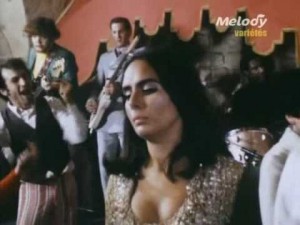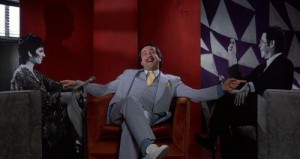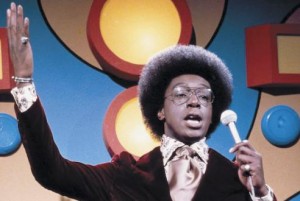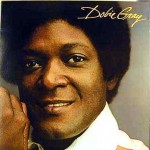
Rare footage was uncovered of Booker T & The MG‘s performing live in 1968 at Urges in Atlantic City. This is smokin’ hot stuff, too hot to place anywhere but after the jump…

Rare footage was uncovered of Booker T & The MG‘s performing live in 1968 at Urges in Atlantic City. This is smokin’ hot stuff, too hot to place anywhere but after the jump…
Steve Cropper has announced on his Facebook page that his longtime partner in crime, Donald “Duck” Dunn, died in his sleep this morning, after playing 2 shows in Japan. Man, he did much more on the bass, but no one could lay into that signature 3-note riff at the heart of so many Stax/Volt songs the way he did.


Sounds of the Hall in roughly 33 1/3 minutes!
In this week’s edition of Saturday Night Shut-In your host, Mr. Moderator, briefly reflects on the death of Don Cornelius before kicking off a set best enjoyed long after sunset.
[audio:https://www.rocktownhall.com/blogs/wp-content/uploads/2012/02/RTH-Saturday-Night-Shut-In-65.mp3|titles=RTH Saturday Night Shut-In, episode 65][Note: The Rock Town Hall feed will enable you to easily download Saturday Night Shut-In episodes to your digital music player. In fact, you can even set your iTunes to search for an automatic download of each week’s podcast.]


I only have a few minutes to share my initial thoughts on this, but I just read the really sad news that Soul Train creator/host Don Cornelius is dead of an apparent suicide. With this morning’s Little Richard piece I wanted to kick off Black History Month with some positive pieces on what black artists in the music world have meant to me. I wasn’t expecting to have to touch on Cornelius in this fashion. You may know that I’m usually a bit of a wiseass when it comes to the whole “RIP” ritual (“Danny Bonaduce, man…RIP.”), but Cornelius and the scene he presented meant a lot to me. To me, he was truly a great…man.


In a recent Dugout Chatter, Mr. Moderator mentioned the passing of two great names in music history: Johnny Otis and Etta James. I’d like to mention the recent death of another notable if minor artist. Born in Texas in 1940, Dobie Gray started out in the 1960s as a soul singer. His most notable early hit was his 1965 cover of “The ‘In’ Crowd” (written by Billy Gray), a manifesto of pre-hippie coolness that reached #13 in the Billboard Hot 100. His smooth singing was beautifully complemented by the counterpoint of the backing vocals and a big-sounding, punchy horn section.
Gray continued to record as the 1960s wore on without major success. He also became a stage actor, most notably in the Los Angeles stage production of Hair. However, lightning struck again for Gray in 1973 with his recording of Mentor William‘s “Drift Away.” With a gentle groove and a gospel-influenced chorus, the song became a big hit in the late spring and reached #5 in the Billboard charts. This is probably his single most-popular song and it still gets wide airplay. It’s not hard to understand why.
Though Dobie never scored another major hit again, he kept on performing and recording and his singles occasionally reached the Billboard charts. After “Drift Away,” he transitioned into becoming a country singer—an unusual move for an African-American artist at the time. Gray also became a notable songwriter, providing material for country and mainstream artists. He toured overseas as a performer with some success and became (at his own insistence) one of the first performers to appear before an integrated audience in apartheid-era South Africa. Gray kept on working over the next few decades. He died of cancer on December 6, 2011, at the age of 71.
So there you have it. Dobie Gray might not be the most famous or most-remembered name in rock history, but he had two genuinely terrific classic hits in him. For that, he deserves a tribute here on Rock Town Hall. Rest in peace, Dobie, and we’ll do our part to make sure you’re not forgotten.
Few movies have ever bugged me as much as Dances With Wolves. I actually took the plunge and spent what felt like 6 hours in a movie theater watching that thing when it came out. I was never a Kevin Costner “hater.” I was never his biggest fan either, but I gave the man his due for No Way Out and Bull Durham. Beside miserably squirming through most of Field of Dreams, I had no ax to grind with the guy at that time in his career. For whatever reservations (no pun intended) I might have had, the story seemed like it might appeal to the broad side of me that loves Little Big Man. My wife and I decided to give it a shot on the big screen.
Man, did that movie blow! And its universal acclaim over the coming months with critics and Motion Picture Academy voters really drove us nuts. It was hard to ever like Costner again, and I disliked that movie so much that it helped me feel the pain “people of color” in America and probably worldwide have felt as Hollywood movie after Hollywood movie presents the plight of their people through the eyes of a Saintly, Heroic White Person. (And what was with Mary McDonnell doing in that movie with workout tape–era Jane Fonda‘s hairdo?)
Most recently The Blind Side was the Hollywood film to bolster this notion. Note, in the linked review, that despite the fact that the story contained probably a good deal of truth that most likely Costner’s crime again me and Native Americans has sensitized critics to new levels. You say you didn’t see The Blind Side or Dangerous Minds or Freedom Writers? I didn’t either, but although I liked Mississippi Burning, I felt a little uncomfortable by the strong presence of Saintly, Heroic White People. There are a lot of other movies that play out this way, and despite the fact that I like my share of them, I am always a little embarrassed for what I imagine moviegoesrs of minority groups may be feeling. I console myself with the fact that I’m a big fan of Ice Cube‘s Barbershop movies and that amazing, little indie movie made by and about a group of Native American friends in contemporary society, Smoke Signals.
Unlike the Hollywood movie industry, however, African Americans have played a strong leading role in music since nearly the beginning of the recording age. Any American of any race born in the 19th century forward has little excuse not to know and love at least some music by African American artists. So why have I come across so many intelligent, educated, music-loving white people who rave about Dusty Springfield‘s 1969 album, Dusty in Memphis, as if it’s a watermark in soul music?
Check out this typical rock press take on the album. Despite the fact that the writer makes it clear that Dusty wasn’t all that happy with the record or being in Memphis, singing in the same vocal booth in which true Memphis greats sweat and slobbered and playing with arguably one of the music industry’s greatest backing bands, he and a legion of modern-day fans of the album clutch onto the myth.
Far from rescuing Springfield’s career, Dusty in Memphis froze it in time, and she would not have another Top 40 hit for more than two decades. But for this album’s army of fans, who’ve picked it up in second-hand stores or in a variety of re-released formats, Dusty in Memphis is not only a popcultural milestone but a timeless emotional reference point.
I have no desire to argue the merits of the album itself. I think it’s merely OK. If I’d bought it in a used bin for 50 cents when I was an idealistic kid I would have held onto it and gotten some mild enjoyment out of it, but beside “Son of a Preacher Man,” which for my money is on par with a similar, fun, semi-corny country-soul tale like Bobbi Gentry‘s “Ode to Billie Joe” or R.B. Greaves‘ “Take a Letter Maria,” I guess I lack the pop sensibility and emotional capacity to identify either the milestone or the reference point this writer notes.
The album’s OK. Dusty Springfield was OK. Her first hit, “I Only Want to Be With You,” is outstanding! Sadly, as I learned as a completely misguided, horny teenage boy, the assumed “super-cute” musical equivalent of a young Julie Christie behind “I Only Want to Be With You,” as I bet many American boys and young men wished all cute-sounding Daughters of the British Invasion would look at that time, was nothing special. She was not even as mildly cute Petula Clark, for instance. Nice bouffant, I guess, but that’s not what I was hoping to find. Bummer. Oh, if only the English had done like the French and matched their Swingin’ Sixties cutiepies up in a recording studio with dirty, old pervs. I’d buy some half-assed Julie Christie single. But that was and is neither here nor there. Continue reading »
Years ago, after hearing her butcher “Satisfaction” and then reading a bunch of ridiculous, freak show-glorifying reviews by kids afraid too chicken to fly into the sun and have their own, healthy breakdown, I figured I would forever cringe at the thought of Cat Power. Then she started to get all Memphis soul and actually sing structured arrangements with a cool band. These cats even tried to help her reconstruct “Satisfaction.” They tried; at least Chan looks like her hormones have been activated, as the song was written to influence.
I own one of those Memphis soul albums and like it a lot. I no longer cringe at the thought of Cat Power; in fact, for the last few years I’ve been open to hearing more of her music. I’ve even moved past my disdain for fans of her early records. Just now, however, I was hoping to find a clip of Fairport Convention doing “Who Knows Where the Time Goes,” my favorite song by them. I was listening to a live version on the drive in this morning, and figured maybe I’d finally find live footage of Sandy Denny performing the song with them. Nice dice. Instead I came across this solo Cat Power performance.
WTF? Is this part of that “[Insert Artist] Shreds” series of videos I’ve seen posted on YouTube?